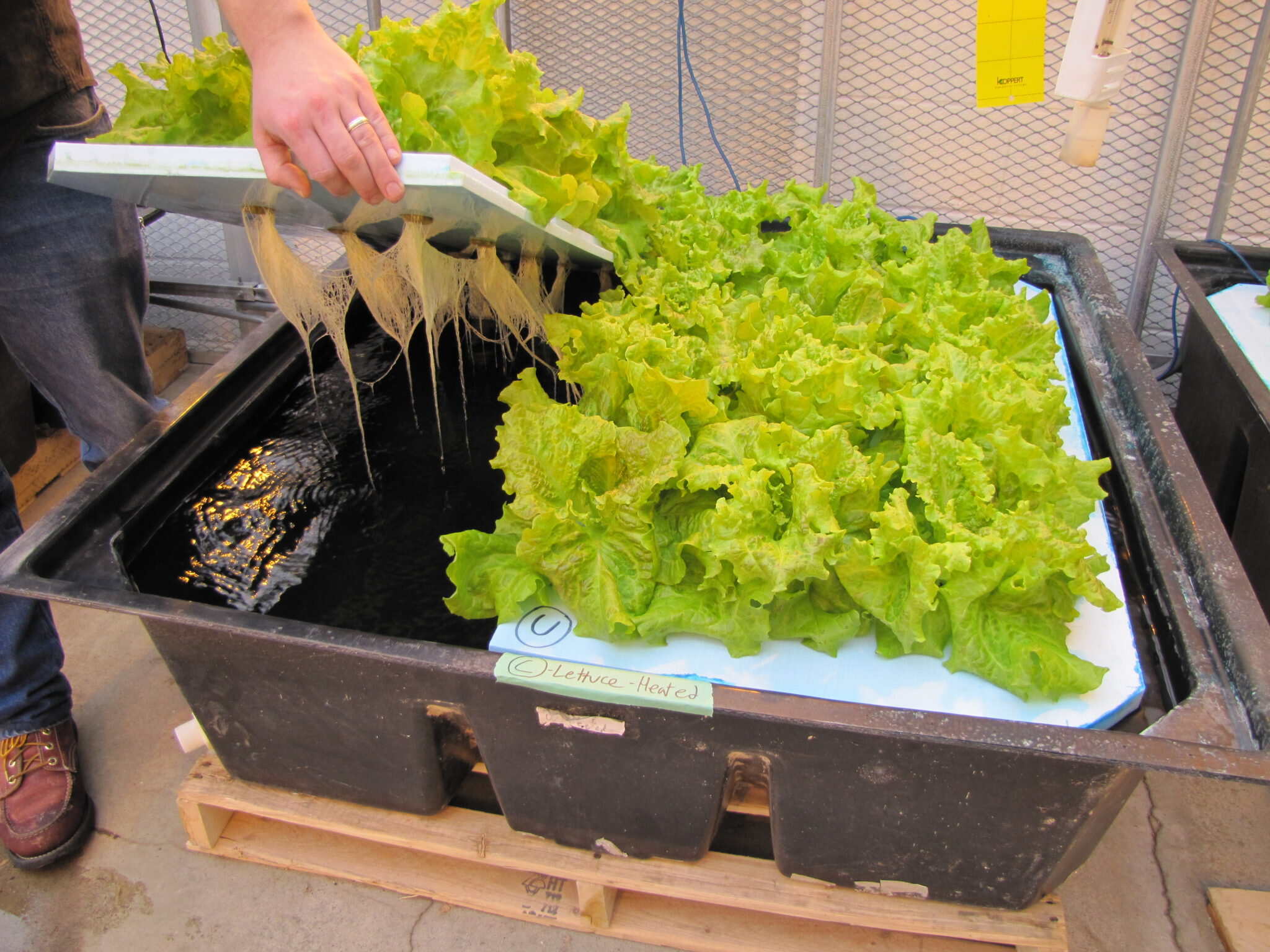Home>Gardening News and Trends>Latest News>How To Get Horticulture Degree


Latest News
How To Get Horticulture Degree
Modified: January 22, 2024
Learn how to obtain a horticulture degree and stay updated with the latest news in the field. Explore various programs and opportunities to kickstart your career in horticulture.
(Many of the links in this article redirect to a specific reviewed product. Your purchase of these products through affiliate links helps to generate commission for Chicagolandgardening.com, at no extra cost. Learn more)
Table of Contents
- Introduction
- What Is Horticulture?
- Why Pursue a Horticulture Degree?
- Different Types of Horticulture Degrees
- Choosing the Right Horticulture Program
- Admission Requirements for Horticulture Programs
- Curriculum and Coursework in a Horticulture Degree
- Career Opportunities with a Horticulture Degree
- Job Outlook and Salary Potential
- Conclusion
Introduction
Horticulture is a fascinating field that combines science, art, and a deep appreciation for plants and the natural environment. From cultivating beautiful gardens to improving crop yields, horticulture plays an essential role in our society. If you have a passion for plants and want to pursue a career in this thriving industry, obtaining a horticulture degree is a great way to start.
But what exactly is horticulture? And why should you consider pursuing a degree in this field? In this article, we will explore the world of horticulture, the different types of horticulture degrees available, and the various career opportunities that await you upon graduation.
Horticulture is the science and art of cultivating plants for human use and enjoyment. It encompasses a wide range of activities, including plant propagation, crop production, landscaping, plant breeding, and plant conservation. Whether you dream of designing stunning gardens, developing sustainable agricultural practices, or conducting research to improve plant health, a horticulture degree can provide you with the skills and knowledge needed to succeed in these endeavors.
So, why should you consider pursuing a horticulture degree? Firstly, horticulture is a rapidly growing industry that offers a wide array of career opportunities. According to the United States Bureau of Labor Statistics, employment in the horticulture field is projected to grow by 13% from 2018 to 2028, which is faster than the average for all occupations. This means that there will be a high demand for horticulture professionals in the coming years.
Secondly, horticulture is a field that allows you to work closely with nature and make a positive impact on the environment. By understanding the principles of plant growth and cultivation, you can help develop sustainable practices that conserve water, reduce chemical inputs, and promote biodiversity. As our society becomes more conscious of the need for environmental stewardship, horticulture professionals will play a vital role in creating a greener and healthier future.
Lastly, a horticulture degree offers a diverse range of career paths. Whether you’re interested in working with flowers, fruits and vegetables, ornamental plants, or even turf management, there are countless opportunities to specialize and carve out your niche in the horticulture industry. From working in botanical gardens and nurseries to becoming a horticulture consultant or landscape designer, the possibilities are endless.
In the next sections, we will delve deeper into the different types of horticulture degrees available, how to choose the right program, the admission requirements, the curriculum and coursework, and the exciting career opportunities that await you with a horticulture degree.
What Is Horticulture?
Horticulture is the science, art, and practice of cultivating plants for various purposes, including food production, beautification, medicinal use, and environmental conservation. It encompasses a wide range of disciplines, such as plant breeding, propagation, production, management, and landscape design. Horticulturists study and apply principles of plant physiology, genetics, ecology, and pest management to ensure optimal plant growth and development.
Horticulture plays a crucial role in society by providing nutritious food, enhancing the aesthetic appeal of spaces, and contributing to environmental sustainability. It is a diverse and dynamic field that encompasses various sub-disciplines, including:
- Pomology: It focuses on the cultivation of fruits and nuts, including tree fruits like apples, cherries, and citrus fruits, as well as small fruits like berries.
- Olericulture: This branch of horticulture deals with the production of vegetables, including leafy greens, root vegetables, and cruciferous vegetables like broccoli and cauliflower.
- Floriculture: Floriculture is the cultivation of flowering and ornamental plants for use in floral arrangements, landscaping, and the potted plant market.
- Landscape horticulture: It involves the planning, design, and establishment of outdoor spaces, such as gardens, parks, and urban landscapes, with an emphasis on both aesthetic and functional elements.
- Turfgrass management: This field focuses on the cultivation and maintenance of grasses, such as those used in lawns, sports fields, and golf courses.
- Arboriculture: Arboriculture involves the care and management of trees, including tree planting, pruning, and disease management.
- Postharvest horticulture: This area of horticulture deals with the handling, storage, and processing of horticultural commodities after they are harvested to maintain their quality and extend their shelf life.
Horticulturists employ various techniques and technologies to optimize plant growth and productivity. These may include greenhouse production, hydroponics, integrated pest management, plant tissue culture, and genetic modification. Additionally, horticulture encompasses the conservation and preservation of plant biodiversity, as well as research and education aimed at advancing the field and disseminating knowledge.
Overall, horticulture is a multifaceted discipline that combines scientific knowledge, creativity, and a love for plants. It offers a fulfilling and rewarding career path for individuals who are passionate about plants, nature, and the sustainable development of our environment.
Why Pursue a Horticulture Degree?
A horticulture degree opens up a world of opportunities for those passionate about plants, nature, and sustainable agriculture. Pursuing a degree in horticulture offers several compelling reasons to consider this field of study.
1. In-demand Career Opportunities: The horticulture industry is experiencing significant growth, resulting in a high demand for skilled professionals. With a horticulture degree, you can explore a wide range of career paths, including garden management, landscape design, crop production, research, and teaching. Whether you dream of becoming a greenhouse manager, a botanical garden curator, or a horticulture consultant, a degree in horticulture opens doors to numerous rewarding careers.
2. Hands-on Learning: Horticulture programs often offer valuable hands-on learning experiences. You’ll have the opportunity to work in greenhouses, nurseries, and gardens, gaining practical skills in plant propagation, cultivation, and management. These hands-on experiences enhance your understanding of plant biology and horticultural practices, preparing you for real-world challenges in your future career.
3. Environmental Stewardship: As the world faces environmental challenges, the need for sustainable practices in horticulture becomes increasingly important. With a horticulture degree, you can contribute to environmentally friendly practices in agriculture, plant conservation, and landscape design. You’ll learn about ecological principles and ways to minimize environmental impact, promoting sustainable use of resources and protecting biodiversity.
4. Personal Fulfillment: For those with a passion for plants and nature, a horticulture degree provides personal fulfillment. You’ll have the opportunity to work with plants, designing and maintaining beautiful gardens, or contributing to increased food production. The satisfaction of watching plants grow, thrive, and provide beauty or sustenance is immeasurable.
5. Diverse Areas of Specialization: Horticulture encompasses various areas of specialization, allowing you to find your niche. Whether you’re interested in fruit production, ornamental plants, sustainable landscaping, or urban agriculture, a horticulture degree provides the foundation and flexibility to pursue your chosen field of interest.
6. Networking and Collaboration: During your horticulture studies, you’ll have the opportunity to connect with industry professionals, professors, and fellow students who share your passion for plants. Building a network within the horticulture community can lead to mentorship, internships, job opportunities, and collaborative research projects, enhancing your career prospects.
7. Contribution to Food Security: With the world’s growing population, the importance of sustainable food production cannot be overstated. By pursuing a horticulture degree, you can contribute to food security by learning techniques to improve crop yields, develop sustainable agricultural practices, and maintain plant health.
8. Lifelong Learning: Horticulture is a field that offers ongoing opportunities for learning and personal growth. As new technologies and research emerge, horticulturists need to stay updated to remain relevant in the industry. With a horticulture degree, you’ll have a solid foundation and be equipped to continue learning throughout your career.
By pursuing a horticulture degree, you open yourself up to a wide range of exciting career paths, contribute to environmental sustainability, and find personal fulfillment through working with plants. The knowledge and skills gained from a horticulture degree will empower you to make a positive impact in the world and help shape the future of our natural landscapes and agricultural systems.
Different Types of Horticulture Degrees
Horticulture degrees come in various forms, each offering a unique focus and specialization within the field. Whether you prefer a broad-based horticulture program or a more specialized degree, there are options to suit your interests and career goals.
1. Associate Degree in Horticulture: An associate degree in horticulture typically takes two years to complete and provides a solid foundation in basic horticultural principles. This degree is ideal for those seeking entry-level positions in the industry or as a stepping stone to a higher degree. Coursework often includes plant identification, plant propagation, soil science, pest management, and landscape design.
2. Bachelor’s Degree in Horticulture: A bachelor’s degree in horticulture is a four-year program that provides a comprehensive education in all aspects of horticulture. This degree offers a more in-depth understanding of plant biology, soil science, pest and disease management, and horticultural business principles. Students can specialize in areas such as landscape design, pomology, olericulture, or floral design. A bachelor’s degree in horticulture opens the door to a wide range of career opportunities in the field.
3. Master’s Degree in Horticulture: A master’s degree in horticulture is a graduate-level program that allows students to specialize in a specific area of horticulture. This degree is ideal for those seeking advanced knowledge and leadership positions in research, academia, or industry. Students often conduct independent research or complete a thesis project in their area of specialization. Specializations can include plant breeding, crop physiology, sustainable agriculture, or horticultural therapy.
4. Doctorate Degree in Horticulture: A doctorate degree in horticulture is the highest level of academic achievement in the field. This degree focuses on advanced research and scholarly contributions to the field of horticulture. Doctoral students often choose a niche area of research, such as plant genetics, plant pathology, or urban agriculture. Graduates with a Ph.D. in horticulture typically pursue careers in academia, research institutions, or industry leadership roles.
5. Certificate Programs: In addition to degree programs, there are also certificate programs available in horticulture. These programs offer specialized training in specific horticultural areas, such as greenhouse management, floral design, or arboriculture. Certificate programs are shorter in duration and provide focused, practical training for individuals who want to develop specific skills without pursuing a full degree.
When considering which type of horticulture degree to pursue, it is important to assess your career goals, interests, and the specific knowledge and skills you wish to acquire. Each degree level offers different opportunities for specialization and career advancement, so choose the one that aligns best with your aspirations in the horticulture field.
Choosing the Right Horticulture Program
Choosing the right horticulture program is a crucial step in your academic and professional journey. With various options available, it’s important to consider several factors to ensure that you select a program that aligns with your goals and provides the necessary knowledge and skills for your desired career path.
1. Program Focus: Horticulture programs can have different areas of focus, such as landscape design, crop production, or plant science. Consider your interests and career goals to find a program that aligns with your desired specialization. Research the curriculum and course offerings to ensure they cover the areas of horticulture that interest you.
2. Accreditation and Reputation: Look for programs that are accredited by recognized horticulture or agricultural accreditation bodies. Accreditation ensures that the program meets certain standards of quality and provides valuable education. Additionally, research the reputation of the program and university to ensure that they have a track record of producing successful graduates in the horticulture field.
3. Faculty and Research Opportunities: Explore the credentials and expertise of the faculty members in the horticulture program. Are they actively involved in research or industry work? Having knowledgeable and experienced faculty can greatly enhance your learning experience. Furthermore, consider if the program offers research opportunities or internships, as these can provide practical, hands-on experience and networking opportunities.
4. Facilities and Resources: Assess the facilities and resources available to students in the horticulture program. This may include greenhouses, laboratories, research farms, or botanical gardens. Access to modern equipment, technology, and resources can greatly enhance your learning experience and practical skills development.
5. Experiential Learning Opportunities: Look for programs that offer opportunities for experiential learning, such as field trips, hands-on projects, or cooperative education (co-op) programs. Experiential learning provides real-world application of horticultural principles and allows you to develop practical skills that are valued by employers.
6. Career Services and Alumni Network: Consider the support services available to students, such as career counseling and job placement assistance. A strong alumni network can also provide valuable connections and opportunities for mentorship or internship placements. Research the career paths of past graduates to determine if the program has a history of successful job placement in the horticulture industry.
7. Flexibility and Location: Assess the program’s flexibility and whether it offers options for part-time or online study, if needed. Consider the location of the program and determine if it aligns with your lifestyle, preferences, and potential job opportunities in the horticulture industry.
8. Financial Considerations: Evaluate the cost of tuition and fees associated with the program. Additionally, explore scholarship or financial aid options that may be available, as this can help alleviate the financial burden of pursuing a horticulture degree.
By considering these factors and conducting thorough research, you can choose a horticulture program that meets your needs, interests, and career aspirations. Keep in mind that selecting the right program can significantly impact your educational and professional success in the horticulture industry.
Admission Requirements for Horticulture Programs
When applying to horticulture programs, it is important to familiarize yourself with the admission requirements to ensure that you meet the criteria for eligibility. While specific requirements may vary between universities and programs, there are several common factors to consider when applying for a horticulture program.
1. High School Diploma or Equivalent: Most horticulture programs require applicants to have a high school diploma or equivalent qualification, such as a GED. A strong foundation in math and science subjects, such as biology and chemistry, is beneficial for success in horticulture studies.
2. Transcripts and GPA: Applicants are typically required to submit their high school transcripts or previous college transcripts. Admissions committees review the applicant’s academic performance, paying attention to the grade point average (GPA) as an indicator of academic ability and commitment.
3. Standardized Tests: Some horticulture programs may require applicants to submit standardized test scores, such as the SAT or ACT. However, it is essential to check the specific requirements of each program as certain universities may have made these tests optional.
4. Letters of Recommendation: Many horticulture programs ask for letters of recommendation from teachers, mentors, or employers who can speak to the applicant’s academic abilities, work ethic, and commitment to the field. These recommendations provide insight into the applicant’s character and potential for success in the program.
5. Personal Statement or Essay: Some horticulture programs require applicants to write a personal statement or essay. This is an opportunity for applicants to showcase their passion for horticulture, their career goals, and how the program aligns with their objectives. It is essential to articulate your experiences, accomplishments, and aspirations in a clear and compelling manner.
6. Interview or Portfolio: Certain horticulture programs may conduct interviews or request a portfolio as part of the admission process. Interviews provide an opportunity for applicants to discuss their interests, experiences, and goals with program representatives. Portfolios, on the other hand, allow applicants to showcase their previous work, such as plant designs, project plans, or relevant artwork.
7. Prerequisite Courses: Some horticulture programs may require applicants to have taken specific prerequisite courses in high school, such as biology, chemistry, or mathematics. It is important to review the program’s prerequisites and ensure that you have taken the required courses or are willing to complete them before starting the program.
8. Demonstrated Interest: In some cases, horticulture programs may evaluate an applicant’s interest in horticulture and the program itself. This can be demonstrated through participation in extracurricular activities, volunteer work, or relevant work experience. It is beneficial to showcase your commitment to the field and your understanding of the horticulture industry.
It is important to note that the admission requirements and criteria may vary between different horticulture programs and universities. Therefore, it is crucial to thoroughly research and review the specific requirements of each program you are interested in applying to, ensuring that you prepare and submit all the necessary documents and meet the qualifications for admission.
Curriculum and Coursework in a Horticulture Degree
A horticulture degree provides students with a comprehensive understanding of plant science, cultivation techniques, and management strategies. The curriculum and coursework in a horticulture degree program are designed to equip students with the knowledge and skills necessary for success in the field. While specific courses may vary between programs, there are several core areas typically covered in a horticulture degree curriculum.
1. Plant Science: Courses in plant science form the foundation of a horticulture degree. Students study plant anatomy, physiology, taxonomy, and genetics to understand how plants grow and develop. They learn about the processes of photosynthesis, respiration, and transpiration, as well as the role of hormones in plant growth and development.
2. Soil Science: Understanding the properties and management of soil is essential for successful horticulture practices. Soil science courses cover topics such as soil composition, fertility, pH, and nutrient management. Students learn about soil testing, soil amendments, and sustainable soil management techniques.
3. Plant Propagation: Plant propagation courses teach students how to reproduce plants through various methods, such as seeds, cuttings, grafting, and tissue culture. Students learn about the principles and techniques involved in successful plant propagation, as well as the selection of appropriate propagation methods for different plant species.
4. Horticultural Crop Production: Courses in horticultural crop production focus on the cultivation and management of horticultural crops, including fruits, vegetables, and ornamental plants. Students learn about crop planning, cultivation techniques, pest and disease management, irrigation, and post-harvest handling.
5. Landscape Design and Management: Courses in landscape design and management cover the principles and practices of creating visually appealing and functional outdoor spaces. Students learn about plant selection, site analysis, landscape planning, and the use of hardscape elements. They also study sustainable landscape management, including water conservation and integrated pest management.
6. Pest and Disease Management: Courses in pest and disease management teach students how to identify, prevent, and manage common pests and diseases that affect horticultural crops and plants. They learn about integrated pest management strategies, including the use of biological controls, cultural practices, and chemical interventions.
7. Greenhouse Management: Greenhouse management courses focus on the principles and techniques involved in greenhouse production. Students learn about greenhouse design, environmental controls, crop scheduling, and the maintenance of optimal growing conditions for plants.
8. Business and Management: Some horticulture degree programs include coursework in business and management, equipping students with skills in budgeting, marketing, and entrepreneurship. These courses provide a foundation for those interested in starting their own horticulture-related businesses or pursuing management roles in the industry.
9. Electives and Specializations: Many horticulture degree programs allow students to choose elective courses or specialize in specific areas of interest. These may include subjects like arboriculture, floriculture, viticulture, organic farming, or medicinal plants. Electives and specializations allow students to tailor their education to their specific career goals and interests within horticulture.
In addition to coursework, horticulture degree programs often include hands-on experiences, such as field trips, internships, and research opportunities, allowing students to apply their knowledge in practical settings. These experiences supplement classroom learning and provide valuable industry exposure.
By completing the curriculum and coursework in a horticulture degree program, students develop a strong foundation in plant science, cultivation techniques, and management principles. This prepares them for diverse career opportunities in the horticulture industry, whether in crop production, landscape design, research, or business management.
Career Opportunities with a Horticulture Degree
A horticulture degree opens up a wide range of career opportunities in various sectors of the industry. Graduates with a horticulture degree have the knowledge and skills to pursue rewarding careers that involve working with plants, managing landscapes, and contributing to environmental sustainability. Here are some potential career paths for individuals with a horticulture degree:
1. Landscape Designer: As a landscape designer, you can create aesthetically pleasing and functional outdoor spaces. You will work with clients to design gardens, parks, and other landscapes, selecting appropriate plants, hardscape elements, and sustainable features.
2. Horticulturist/Nursery Manager: Horticulturists and nursery managers oversee the cultivation and production of plants in nurseries or garden centers. They manage plant care, monitor pest and disease issues, and ensure the quality of plants for sale.
3. Arborist: Arborists specialize in the care and management of trees. They assess tree health, provide pruning and maintenance services, and diagnose and treat tree diseases and pests. Arborists often work for municipalities, tree care companies, or as consultants.
4. Botanical Garden Curator: Curators in botanical gardens manage the overall operations and collections of the garden. They plan and coordinate exhibits, conduct research, and provide educational programs to the public.
5. Garden/Museum Director: Garden or museum directors oversee the management of botanical gardens or outdoor museums. They are responsible for strategic planning, budgeting, staff management, programming, and ensuring the overall success of the institution.
6. Horticulture Educator: With a horticulture degree, you can pursue a career in teaching and education. This can involve teaching horticulture courses at universities, community colleges, or vocational schools, as well as conducting workshops and training sessions for gardeners and landscape professionals.
7. Sustainability Consultant: Sustainability consultants work with individuals, businesses, or municipalities to develop and implement sustainable practices in landscaping, horticultural production, or urban agriculture. They focus on water conservation, waste reduction, and environmentally friendly landscaping techniques.
8. Researcher: Horticulture graduates can contribute to the advancement of the field through research. Working in research institutions, universities, or private companies, researchers investigate new cultivation techniques, develop disease-resistant plant varieties, or explore innovative approaches to sustainable agriculture.
9. Parks and Recreation Manager: Parks and recreation managers oversee the planning, development, and maintenance of public parks and recreational facilities. They ensure that the park areas are well-managed, visually appealing, and provide a pleasant experience for the community.
10. Urban Farming Specialist: With the increasing focus on urban agriculture and food security, horticulture graduates can specialize in urban farming. They may work on rooftop farms, community gardens, or indoor vertical farms, implementing sustainable farming practices and promoting local food production.
The horticulture industry offers numerous career opportunities, allowing individuals to combine their passion for plants and the outdoors with sustainable practices. Whether you choose to work directly with plants, design landscapes, conduct research, or educate others, a horticulture degree provides a solid foundation for a fulfilling and rewarding career in the industry.
Job Outlook and Salary Potential
The job outlook for individuals with a horticulture degree is generally positive. The demand for skilled horticulture professionals is expected to grow in various sectors of the industry, offering promising career prospects. Additionally, the salary potential in the field of horticulture can vary depending on factors such as experience, specialization, location, and industry sector.
Job Outlook: According to the United States Bureau of Labor Statistics, employment in the agricultural and food science technician field, which includes horticulture, is projected to grow by 6% from 2019 to 2029, which is faster than the average for all occupations. The increasing interest in sustainable agriculture, urban farming, and environmental conservation is driving the demand for skilled horticulture professionals in various settings, including public and private sectors, non-profit organizations, and research institutions.
The job outlook for specific horticulture careers can vary. For example, the demand for landscape architects is projected to grow by 4% from 2019 to 2029, driven by the need for sustainable and aesthetically pleasing outdoor spaces. The demand for arborists is also expected to increase as urban development continues to encroach on natural environments, requiring skilled professionals to care for trees in urban areas.
Salary Potential: The salary potential for individuals with a horticulture degree can vary widely depending on factors such as job position, experience level, geographic location, and industry sector. According to the United States Bureau of Labor Statistics, the median annual wage for agricultural and food science technicians was $42,580 in May 2020.
With regards to specific horticulture careers, the salary potential varies. Landscape architects, for example, had a median annual wage of $73,160 in May 2020. Nursery and greenhouse managers had a median annual wage of $71,160, while grounds maintenance workers had a median annual wage of $31,910.
It’s important to note that these figures are median values and that salary potential can differ significantly based on factors such as location and years of experience. Additionally, professionals who specialize in niche areas or hold advanced degrees may have higher earning potential.
While salary potential is important, it’s equally crucial to consider the fulfillment and satisfaction that horticulture careers provide. Many individuals are drawn to the horticulture field due to the opportunity to work with nature, contribute to environmental sustainability, and make a positive impact on their communities.
Overall, the job outlook for individuals with a horticulture degree is positive, with a growing demand for skilled professionals in various sectors of the industry. While salary potential can vary, pursuing a career in horticulture offers the opportunity to work in a fulfilling and rewarding field that combines passion for plants with environmental stewardship.
Conclusion
Horticulture is a diverse and exciting field that offers a wide range of career opportunities for individuals passionate about plants, nature, and sustainable agriculture. Obtaining a horticulture degree provides a strong foundation in plant science, cultivation techniques, and management principles, equipping graduates with the knowledge and skills necessary to succeed in the industry.
Throughout this article, we have explored various aspects of pursuing a horticulture degree, including the definition of horticulture, the reasons to pursue a degree in this field, the different types of horticulture degrees available, and the career opportunities that await graduates. We’ve also discussed important considerations when choosing a horticulture program and the admission requirements that aspiring horticulturists need to meet.
Furthermore, we have delved into the curriculum and coursework of a horticulture degree, highlighting the core subjects taught in these programs. From plant science and soil science to landscape design and pest management, horticulture degree programs cover a wide range of topics that prepare students for diverse career paths within the industry.
Lastly, we have discussed the job outlook and salary potential for individuals with a horticulture degree. The horticulture industry offers promising job prospects, with growing demand in areas such as landscape design, urban farming, and research. While salary potential can vary based on factors such as experience and location, pursuing a career in horticulture provides an opportunity to make a positive impact on the environment and work in a fulfilling field.
In conclusion, a horticulture degree offers an exciting path for individuals passionate about plants and nature. It provides the knowledge and skills needed to pursue diverse career opportunities, contribute to environmental sustainability, and make a positive difference in the world of horticulture.










